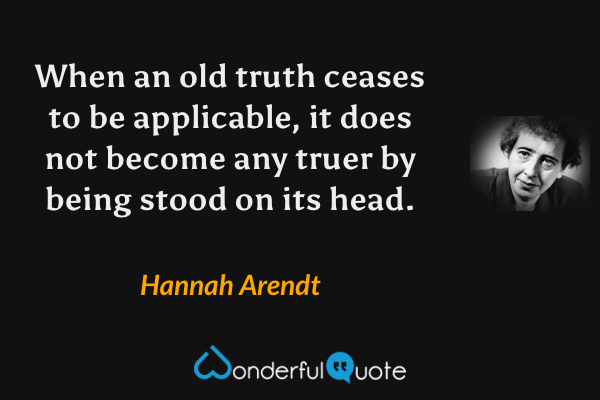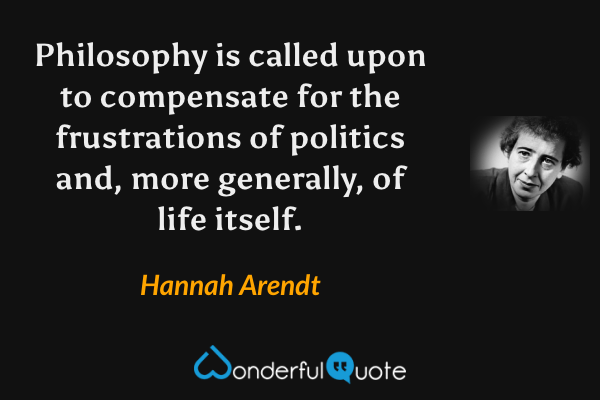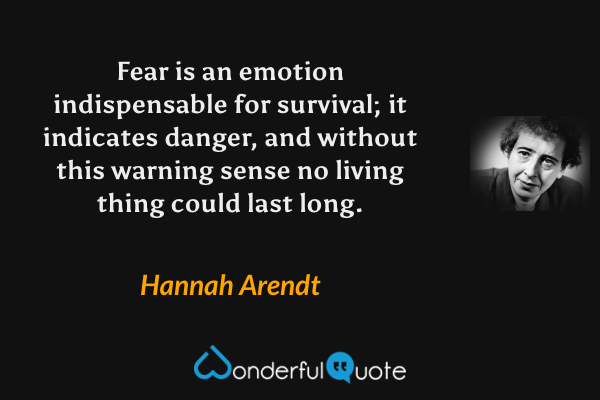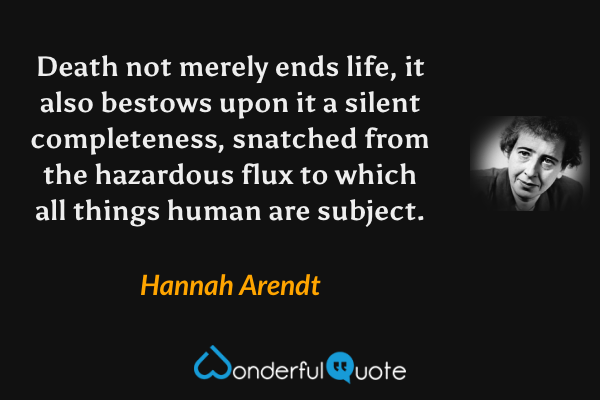Hannah Arendt Quotes
Most popular Hannah Arendt Quotes

Bureaucracy, the rule of nobody.

To think and to be fully alive are the same.

Forgiveness is the key to action and freedom.

There are no dangerous thoughts. Thinking itself is dangerous.

Solitude is that human situation in which I keep myself company.

The hypocrite's crime is that he bears false witness against himself.

Storytelling reveals meaning without committing the error of defining it.

Thinking, existentially speaking, is a solitary but not a lonely business.

The disturbing thing about matters of taste is that they are not communicable.

Loneliness comes about when I am alone without being able to keep myself company.

In order to go on living one must try to escape the death involved in perfection.

Conscience is the anticipation of the fellow who awaits you if and when you come home.

The most radical revolutionary will become a conservative the day after the revolution.

If we do not know our own history, we are doomed to live it as though it were our private fate.

When an old truth ceases to be applicable, it does not become any truer by being stood on its head.

Only where there is reason to suspect that conditions could be changed and are not does rage arise.

By its very nature the beautiful is isolated from everything else. From beauty no road leads to reality.

Philosophy is called upon to compensate for the frustrations of politics and, more generally, of life itself.

Of all things of thought, poetry is the closest to thought, and a poem is less a thing than any other work of art.

Fear is an emotion indispensable for survival; it indicates danger, and without this warning sense no living thing could last long.

Whenever the relevance of speech is at stake, matters become political by definition, for speech is what makes man a political being.

Revolutionaries do not make revolutions! The revolutionaries are those who know when power is lying in the street and when they can pick it up.

Death not merely ends life, it also bestows upon it a silent completeness, snatched from the hazardous flux to which all things human are subject.

The trouble with lying and deceiving is that their efficiency depends entirely upon a clear notion of the truth that the liar and deceiver wishes to hide.

Every activity performed in public can attain an excellence never matched in privacy; for excellence, by definition, the presence of others is always required.

Psychologically speaking, one may say that the hypocrite is too ambitious; not only does he want to appear virtuous before others, he wants to convince himself.

Without being forgiven, released from the consequences of what we have done, our capacity to act would, as it were, be confined to one single deed from which we could never recover.

It was as though in those last minutes he was summing up the lesson that this long course in human wickedness had taught us—the lesson of the fearsome, word-and-thought-defying banality of evil.

Thought...is still possible, and no doubt actual, wherever men live under the conditions of political freedom. Unfortunately...no other human capacity is so vulnerable, and it is in fact far easier to act under conditions of tyranny than it is to think.


